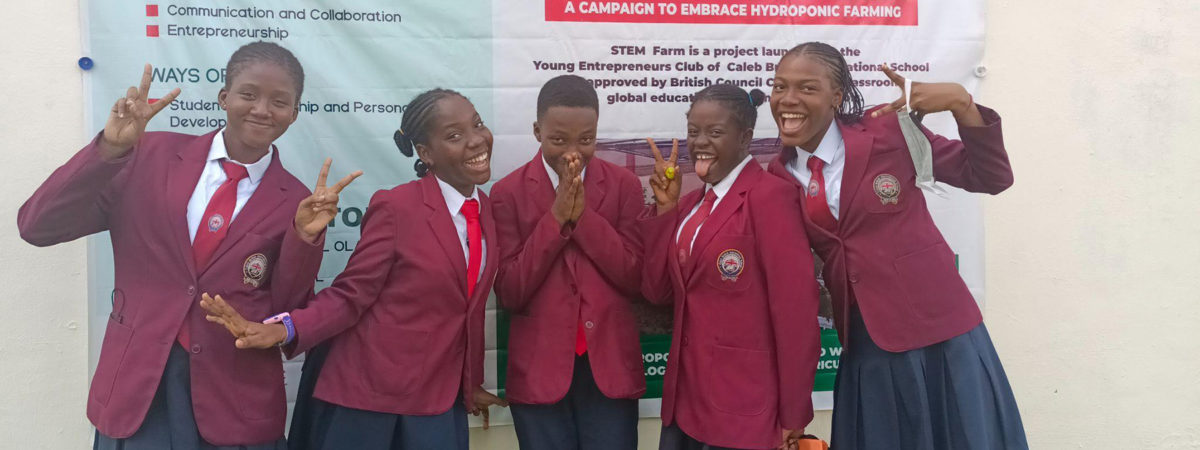
I teach chemistry at Caleb British International School (CBIS), Lagos, Nigeria and feel lucky to help teenagers to use their hands to design and invent solutions to societal challenges. I believe in education that solves problems. This is why my philosophy of education is patterned after John Dewey’s philosophy of education. I believe that the purpose of education is to cultivate thoughtful, critically reflective, socially engaged individuals, rather than passive recipients of established knowledge.
“I believe that education should prepare learners for real-life situations and expose them to challenges in the community. It should engage them to take action and provide solutions to challenges through experiential learning in and outside of the classroom.” – Samuel Awoyemi Olaoluwa

Junior students working on the farm. Photo Credit: Samuel Awoyemi Olaoluwa
As usual, we started by having classroom discussions and brainstorming and also used after-school club time to do more brainstorming and online research. These activities spanned two months, from April to June.
Students came up with several ideas, but eventually we decided that providing an alternate farming system in our community could be a way to address climate change problems in our community and in the world. Hence, the STEM Farm was born.
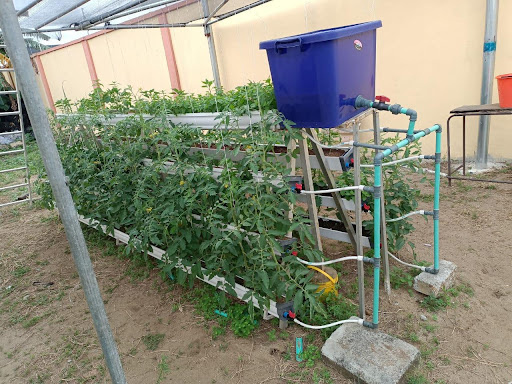
Hydroponic STEM Farm system. Photo Credit: Samuel Awoyemi Olaoluwa
By engaging students in the STEM Farm project, I was able to incorporate experiential learning strategies. Students were taken through a concrete experience that extended their understanding, as well as their reflective observation, conceptualization, and active experimentation skills. The project helped students to look beyond the purely cognitive and content acquisition to connect to the physical, artistic, emotional, and social.
Students planted the seeds in a seedling tray but many seedlings did not survive. The critical question was,“Why did they die?” After a series of discussions and brainstorming, the conditions were varied, and in July, the seedlings were transplanted to the hydroponic system. Students were able to learn an important lesson in entrepreneurship: resilience. Things are not always the way they seem, and they must be able to balance excitement and reality in order to succeed as entrepreneurs. Students were so proud of themselves and so excited to see the product of their brainstorming and research activities.
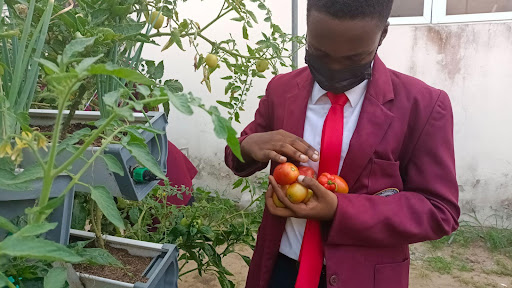
Harvest time in the STEM Farm. Photo Credit: Samuel Awoyemi Olaoluwa
What I did to keep them motivated was to group them in line with their skills. They were grouped into several teams, like social media teams, graphics teams, video editing teams, and the marketing teams, and branding teams. The students were really excited because they were engaged in the area where they were so versatile and skillful. – Samuel Awoyemi Olaoluwa
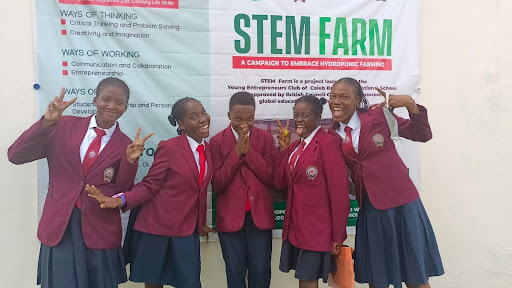
STEM Farm’s purpose was written on a banner and placed at a strategic point in the school to help students identify and learn innovative ways of thinking, working, and living. Photo Credit: Samuel Awoyemi Olaoluwa
I have watched my students experience frequent moments of profound happiness several times while working on this project—it is what Maslow called “peak experiences.” This happiness stemmed from the fact that the students were being recognised both locally and internationally for taking action in the community. Students were invited to a number of local and international events and conferences to showcase their work and connect with professionals who could learn from their work and give them valuable feedback.
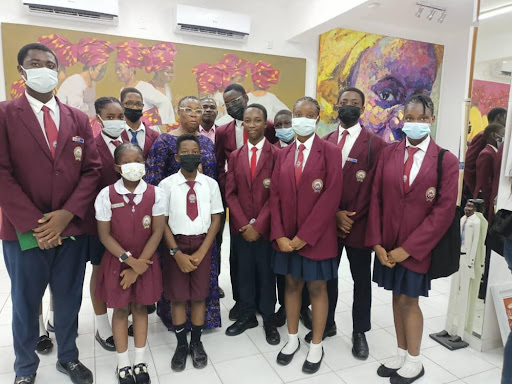
Students at an event with the Commissioner of Education in Lagos. Photo Credit: Samuel Awoyemi Olaoluwa

A student at the UN Climate Change Conference UK 21 leading up to COP26. Photo Credit: Samuel Awoyemi Olaoluwa
My students often see various activists, celebrities, influencers, politicians on TV, but seeing them at close range, talking with them, sharing the same podium, and taking photographs with them was even more fulfilling—as is receiving accolades in front of their parents based on their project work. We may not have all the power to control what happens in the world, but educators can influence our students to take little local actions, with the hope of making a significant impact for change, one class at a time.